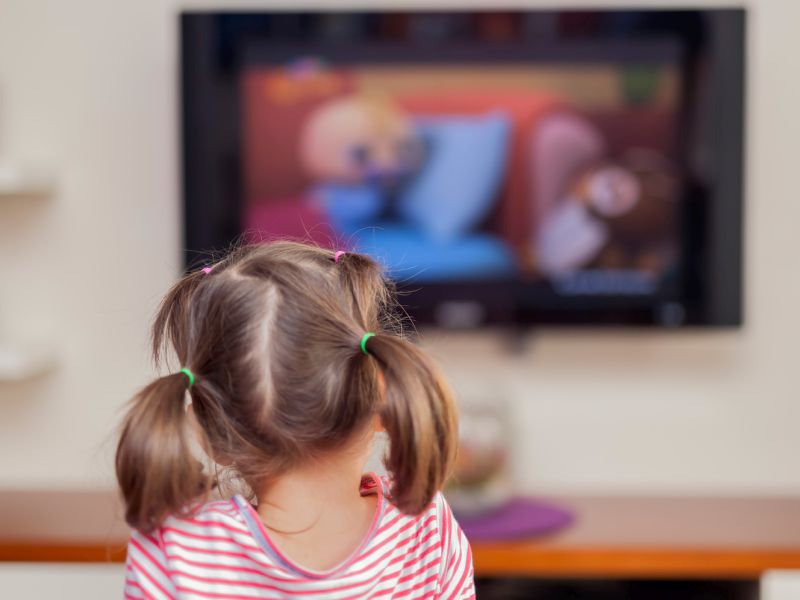
MONDAY, May 20, 2019 (HealthDay News) -- Many parents think that watching TV helps their young children fall asleep, but new research finds the opposite is true.
Researchers looked at 470 children aged 3 to 5 in Massachusetts and found that those who watched less than one hour of TV per day got 22 more minutes of sleep at night -- nearly 2.5 more hours per week -- than those who watched more TV on a daily basis.
"Parents assumed that TV was helping their kids wind down. But it didn't work. Those kids weren't getting good sleep, and it wasn't helping them fall asleep better," said study author Rebecca Spencer, a neuroscientist at the University of Massachusetts Amherst.
Having a TV in the child's bedroom didn't help matters, either.
On average, those without TVs in their bedrooms slept 30 minutes more at night than those with a TV in their bedroom, the study found.
Preschoolers with TVs in their bedroom slept on average 12 minutes longer during naps, but still slept 17 minutes less during a 24-hour period than those without TVs in their bedroom.
The researchers said they were surprised to find that 36% of children had TVs in their bedrooms and that one-third of them fell asleep with the TV on.
"The good news is, this is addressable," Spencer said in a university news release.
New World Health Organization guidelines say children aged 2 to 4 should have no more than one hour of "sedentary screen time" daily, and that less or no screen time is even better.
The American Academy of Pediatrics says screen time for 2- to 5-year-olds should be limited to one hour a day of "high-quality programs," and that parents should watch the programs with their children.
But this study found that 54% of the children did not meet the WHO's guidelines on weekdays, jumping to 87% on weekends.
The study was published May 13 in the journal Sleep Health.
More information
The American Academy of Pediatrics has more on sleep.
Back

The news stories provided in Health News and our Health-E News Newsletter are a service of the nationally syndicated HealthDay® news and information company. Stories refer to national trends and breaking health news, and are not necessarily indicative of or always supported by our facility and providers. This information is provided for informational and educational purposes only, and is not intended to be a substitute for medical advice, diagnosis, or treatment.






